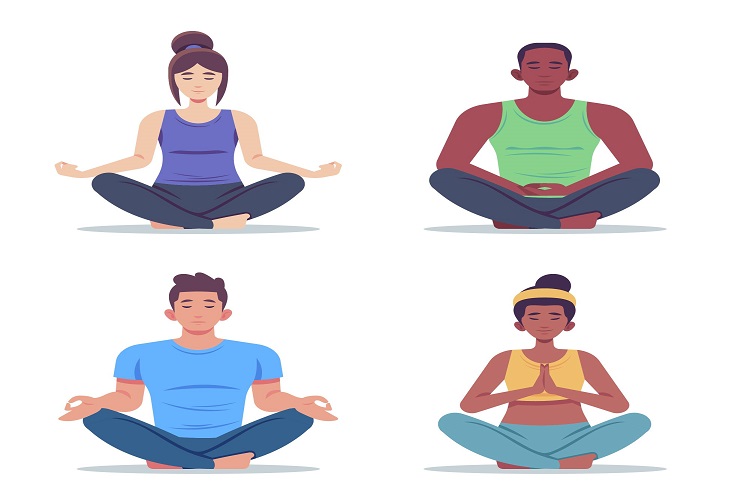
The past year and a half hasn't been easy for anyone. Whether you’re a senior-level executive, a mid-level executive or a fresher, the virtual environment for work hasn’t been the easiest to cope with. This sudden change of work environment amongst our constant consumption of bad news due to the ongoing Coronavirus pandemic and unhealthy usage of social media has been mentally taxing.
It is inevitable for the organisations to practice mindfulness coaching techniques and ensure that their employees healths come first.
Workforces needed to pay attention to the present moment and learn to accept what comes their way in a non-judgemental way. The practice of this very phenomenon is what we call mindfulness. This not only helps reduce work, stress and anxiety, but also results in optimised productivity and improved revenue models.
The question then becomes, how do we practice mindfulness in the workplace?
Here are some ways in which the entire workforce can let go of stress, anxiety and pessimism:
Live in the moment
Mainstream, right? However, it’s quite important. When you’re at work, you need to understand the tasks at hand, chart them out properly and learn to say no to certain tasks if your plate’s already full. A good employer will understand and not overburden you if they know you have hit above your weight. It’s important to understand what’s going on around you and what’s going on within you. If you feel overwhelmed and restless, take a walk, talk to a colleague, take short breaks. Acknowledge what you’re feeling and react accordingly. This will make your productivity improve automatically.
Avoid multi-tasking
Make a to-do list. Focus on one task at a time and then move onto the next. When you strike a task of your to-do list, you’ll not only feel a sense of accomplishment, but it’ll also become easier for you to stay motivated to do the upcoming tasks. Leadership Coaching, Sales Performance coaching
Use mindful reminders
Download a meditation app on your phone and remember to clear your headspace every hour or two. Take mindful breaths. Remind yourself to take it slow. Acknowledge your strengths, weaknesses, and challenges. Do not overwork yourself and stay hydrated. Remember to feed your mind, body, and soul.
Practice humility
Acknowledge your strengths and give yourself credits when due. Do not seek validation in other people all the time and it’ll go a long way in building your self esteem and preventing anxiety. This isn’t overconfidence, this is being self sufficient. However, remember to draw boundaries and not go overboard with your own praises. Listen to other people, take constructive criticisms, and help your community grow with you.
Understand that some things aren’t in your control
If someone unhealthily criticises you and indulges in competition, remind yourself that your only competition is you. Do not let others’ insecurities project on yourself.
If you fail at a task, accept it. Tell yourself and your employer that you’ll do better and work on getting better. There’s nothing that can go wrong beyond repair. It is our anxiety that makes us believe otherwise.
If you’re an employer, understand your employees’ mental health and let them take due breaks. Understand where they’re coming from and organise mindfulness sessions wherever necessary to give everyone the breather that they need. This will also help inculcate a sense of togetherness and integrity in your workforce.
Related Articles:
How to be more confident at work




























